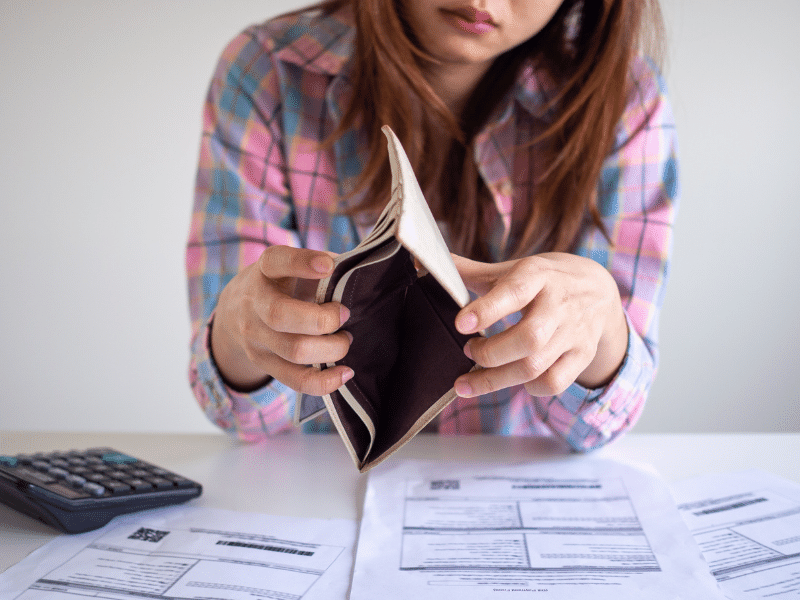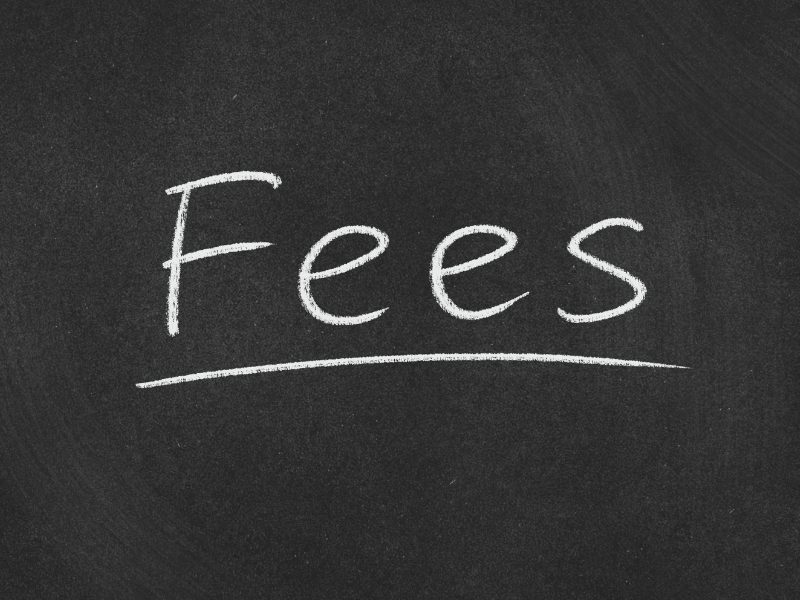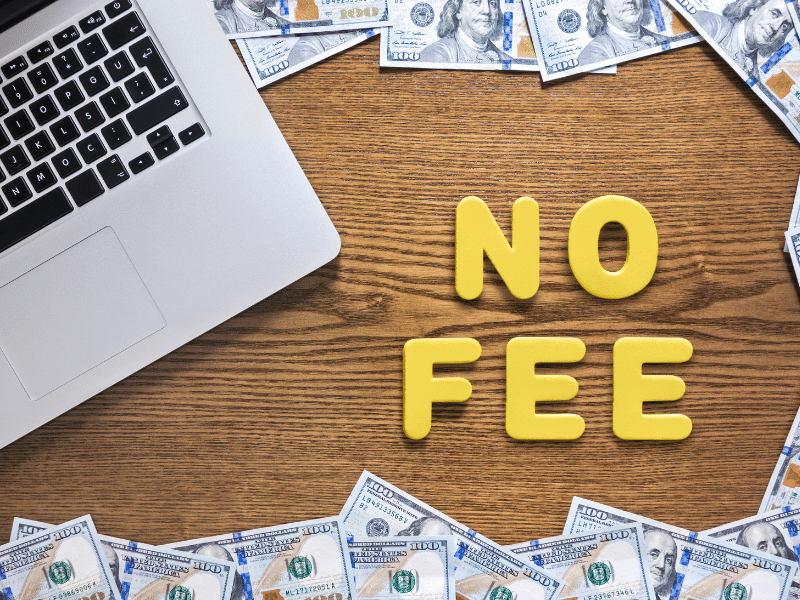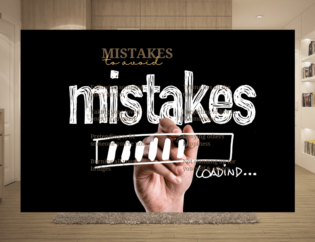
Divorce is a difficult process, both emotionally and financially. If you are considering a divorce but don't have the money to hire a lawyer, there are still options available to you.
Some options are Mediation,File for Attorney Fees, Task-Based Billing or Bundling, Flat-Fee Billing, Withdraw Funds from Retirement Accounts, Take Out a Loan, Credit Cards, Finance Creatively, Pro Bono Attorney, Fee Waivers. Read this entire post if you are searching for an answer of a question "I Need A Divorce Lawyer and Have No Money".
Mediation

Mediation is a process in which both spouses meet with a mediator to discuss the divorce and try to come to an agreement about the terms of the divorce. The mediator is a neutral third party who helps facilitate discussion and keep things on track. Mediation can be less expensive than hiring a lawyer, and it can also be faster and less emotionally charged than going to court.
Pros:
- Usually less expensive than hiring a lawyer
- Can be faster than going to court
- More emotionally charged than going to court
- Facilitates discussion between spouses
Cons:
- Mediator is a neutral third party
- Not always successful in reaching an agreement
File for attorney fees

If you are unable to pay your lawyer's fees, you may be able to file a motion with the court asking that your spouse be ordered to pay them. This is called a "motion for attorney's fees." In order to succeed, you will need to show that: (1) you cannot afford to pay your own attorney's fees; and (2) your spouse has the ability to pay.
Pros:
- If successful, can get your spouse to pay your attorney's fees
Cons:
- Can be expensive
- Requires proving that you cannot afford to pay your own attorney's fees and that your spouse has the ability to pay
Task-based billing or bundling:

With task-based billing, you only pay for the specific tasks that your lawyer performs for you. This can be a good option if you have a limited budget but still need some legal assistance. With bundling, you pay one flat fee for all of the services your lawyer provides.
Pros:
- You only pay for the specific tasks that your lawyer performs for you
- Good option if you have a limited budget
Cons:
- May be difficult to know exactly what you are paying for
- May be more expensive than other options
Flat-fee billing:

Flat-fee billing is a popular option for those who need to hire a lawyer but don't have the money to do so. With flat-fee billing, the lawyer charges a set fee for the entire divorce process, regardless of how long it takes. This can be a great option for those who are on a tight budget, as it eliminates the worry of incurring additional costs as the divorce progresses.This is also a good option if you have a clear idea of what services you need and want to avoid any surprises.
However, it's important to note that not all lawyers offer flat-fee billing. So, if this is something you're interested in, be sure to ask your potential lawyer if they offer this service.
Pros:
- You only pay one flat fee for all of the services your lawyer provides
- Good option if you have a limited budget
Cons:
- May be more expensive than other options
- May be difficult to know exactly what you are paying for
Withdraw funds from retirement

If you are considering a divorce and don't have the money to hire a lawyer, one option you may want to consider is withdrawing funds from your retirement account. This can be a costly process, so be sure to speak with an accountant or financial advisor to get advice on the best way to go about this.
There are a few things to keep in mind when withdrawing funds from a retirement account for a divorce:
-You will likely need to pay taxes on the money you withdraw.
-You may also have to pay early withdrawal penalties.
-You will need to provide documentation that the money is being withdrawn for divorce-related expenses.
-The funds will be removed from your retirement account balance, which could affect your future retirement prospects.
Pros:
-You will likely not have to pay taxes on the money you withdraw.
-You may be able to avoid early withdrawal penalties.
-The funds will be removed from your retirement account balance, which could affect your future retirement prospects.
Cons:
-You will need to pay taxes on the money you withdraw.
-You may also have to pay early withdrawal penalties.
-You will need to provide documentation that the money is being withdrawn for divorce-related expenses.
Take out a loan:

If you are considering a divorce but don't have the money to hire a lawyer, one option you may want to consider is taking out a loan. This can be a costly process, so be sure to speak with an accountant or financial advisor to get advice on the best way to go about this.
There are a few things to keep in mind when taking out a loan for a divorce:
-The interest rate on the loan may be high.
-You will need to make monthly payments on the loan.
-You will need to provide documentation that the loan is being used for divorce-related expenses.
-The loan may need to be paid back in a lump sum if you are unable to make the monthly payments.
Pros:
-The interest rate on the loan may be lower than the interest rate on a credit card.
-You will only need to make monthly payments on the loan.
-You will not need to provide documentation that the loan is being used for divorce-related expenses.
Cons:
-The interest rate on the loan may be high.
-You will need to make monthly payments on the loan.
-You will need to provide documentation that the loan is being used for divorce-related expenses.
-The loan may need to be paid back in a lump sum if you are unable to make the monthly payments.
Credit Cards:

If you are considering a divorce but don't have the money to hire a lawyer, one option you may want to consider is using a credit card.
There are a few things to keep in mind when using a credit card for a divorce:
-You will need to make monthly payments on the credit card.
-You will accrue interest on the balance of the credit card.
-You will need to provide documentation that the credit card is being used for divorce-related expenses.
-You may be required to pay a higher interest rate if you are using the credit card for a divorce.
Pros:
-You will only need to make monthly payments on the credit card.
-You will not need to provide documentation that the credit card is being used for divorce-related expenses.
Cons:
-You will need to make monthly payments on the credit card.
-You will accrue interest on the balance of the credit card.
-You will need to provide documentation that the credit card is being used for divorce-related expenses.
-You may be required to pay a higher interest rate if you are using the credit card for a divorce.
Finance creatively:

If you are considering a divorce but don't have the money to hire a lawyer, one option you may want to consider is financing the divorce creatively. This can be a costly process, so be sure to speak with an accountant or financial advisor to get advice on the best way to go about this.
There are a few things to keep in mind when financing a divorce creatively:
-You will need to find a way to finance the divorce that is not traditional (i.e. loans, credit cards, etc.).
-You will need to provide documentation of how the funds are being used for divorce-related expenses.
-You may need to get creative in how you finance the divorce (i.e. using assets, borrowing from family or friends, etc.).
Pros:
-You will not need to take out a loan or use a credit card to finance the divorce.
-You will not need to provide documentation of how the funds are being used for divorce-related expenses.
Cons:
-You will need to find a way to finance the divorce that is not traditional (i.e. loans, credit cards, etc.).
-You may need to get creative in how you finance the divorce (i.e. using assets, borrowing from family or friends, etc.).
Pro Bono Attorney:

If you are considering a divorce but don't have the money to hire a lawyer, one option you may want to consider is finding a pro bono attorney. This can be a difficult process, so be sure to speak with your local bar association or legal aid office for help in finding an attorney.
A pro bono attorney is an attorney who offers legal services free of charge or at a reduced rate. There are a few things to keep in mind when working with a pro bono attorney:
-You will need to provide documentation that the pro bono attorney is being used for divorce-related expenses.
-The pro bono attorney may have a limited amount of time to work on your case.
-The pro bono attorney may not be able to provide all of the legal services you need.
-You will need to find an attorney who is willing to work for free.
-You may need to provide documentation of your financial situation.
-You will need to be prepared to do some of the work yourself.
-You may not be able to get the same level of representation as you would if you hired a lawyer.
Pros:
-You will not need to pay for the legal services of the pro bono attorney.
-You will not need to pay for an attorney.
-The pro bono attorney may be able to provide some legal services for free.
-You may be able to get representation even if you cannot afford to pay for a lawyer.
Cons:
-You will need to provide documentation that the pro bono attorney is being used for divorce-related expenses.
-The pro bono attorney may have a limited amount of time to work on your case.
-The pro bono attorney may not be able to provide all of the legal services you need.
-You will need to find an attorney who is willing to work for free.
-You may need to provide documentation of your financial situation.
-You will need to be prepared to do some of the work yourself.
-You may not be able to get the same level of representation as you would if you hired a lawyer.
Fee Waivers:

If you are considering a divorce but don't have the money to hire a lawyer, one option you may want to consider is asking for a fee waiver. This can be a difficult process, so be sure to speak with your local court for help in getting a fee waiver.
There are a few things to keep in mind when asking for a fee waiver:
-You will need to provide documentation of your financial situation.
-You may need to appear before a judge to ask for the fee waiver.
-You may need to provide evidence that paying for a lawyer would create a financial hardship.
Pros:
-You will not need to pay for an attorney if you are granted a fee waiver.
-You may be able to get representation even if you cannot afford to pay for a lawyer.
Cons:
-You will need to provide documentation of your financial situation.
-You may need to appear before a judge to ask for the fee waiver.
-You may need to provide evidence that paying for a lawyer would create a financial hardship.
Consult GetDivorcePapers.com
If you are considering a divorce and don't have the money to hire a lawyer, one option you may want to consider is getting help from getdivorcepapers.com. Getdivorcepapers.com provides divorce papers and legal advice for a low price. They also offer a money-back satisfaction guarantee, so you can be sure that you will be satisfied with their services.
Getdivorcepapers.com can help you with the following aspects of your divorce:
-Filing for divorce
-Serving divorce papers
-Dividing property and assets
-Custody and visitation arrangements
-Child support payments
-Alimony payments
-Getdivorcepapers.com can also provide you with legal advice and help you understand the divorce process.
Pros:
-Getdivorcepapers.com offers divorce papers and legal advice for a low price.
-They also offer a money-back satisfaction guarantee, so you can be sure that you will be satisfied with their services.
Financing a divorce can be difficult, but there are several options available to you. We have outlined some of the most common methods of financing a divorce, as well as the pros and cons of each option. If you are considering a divorce but don't have the money to hire a lawyer,









